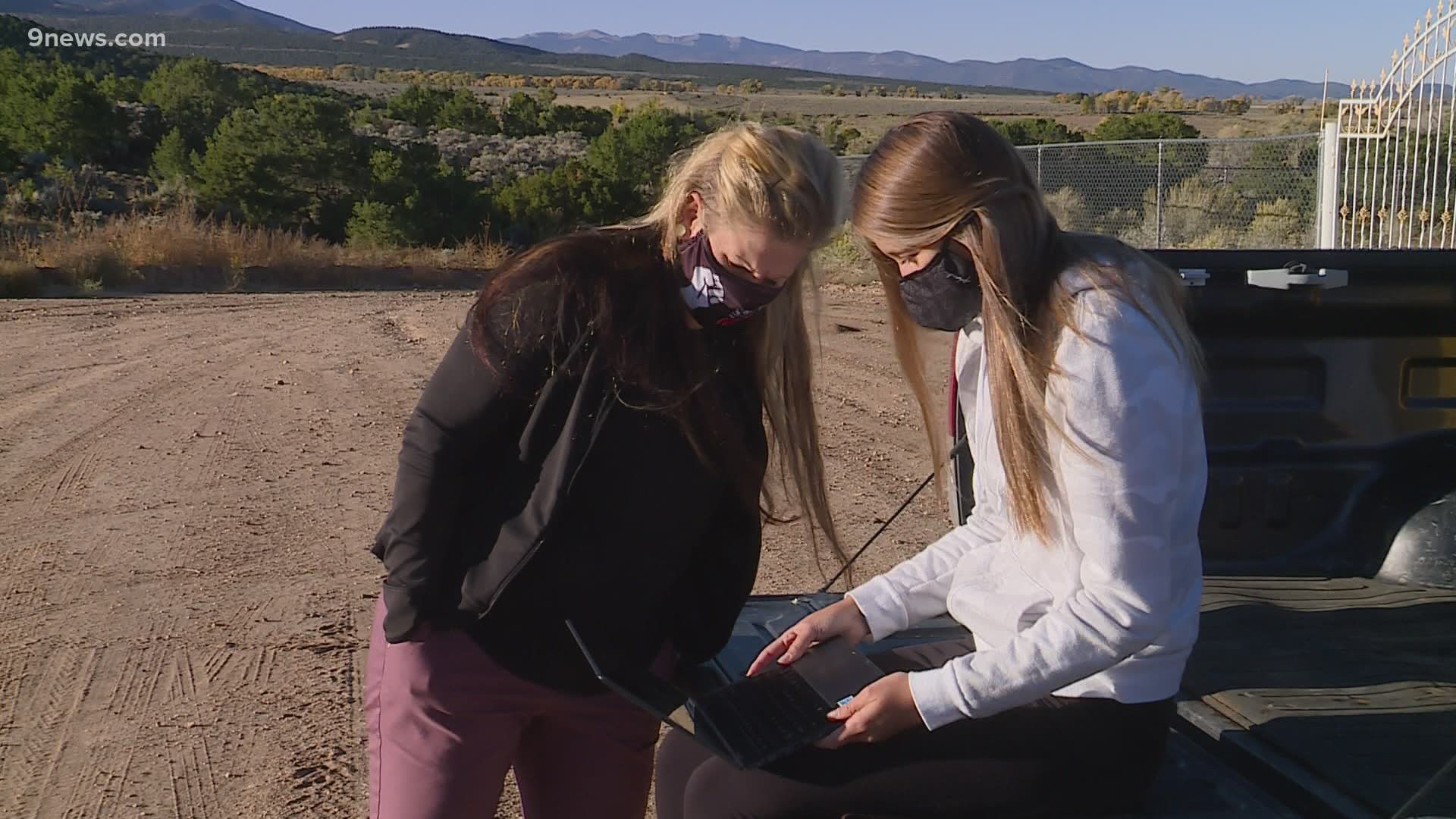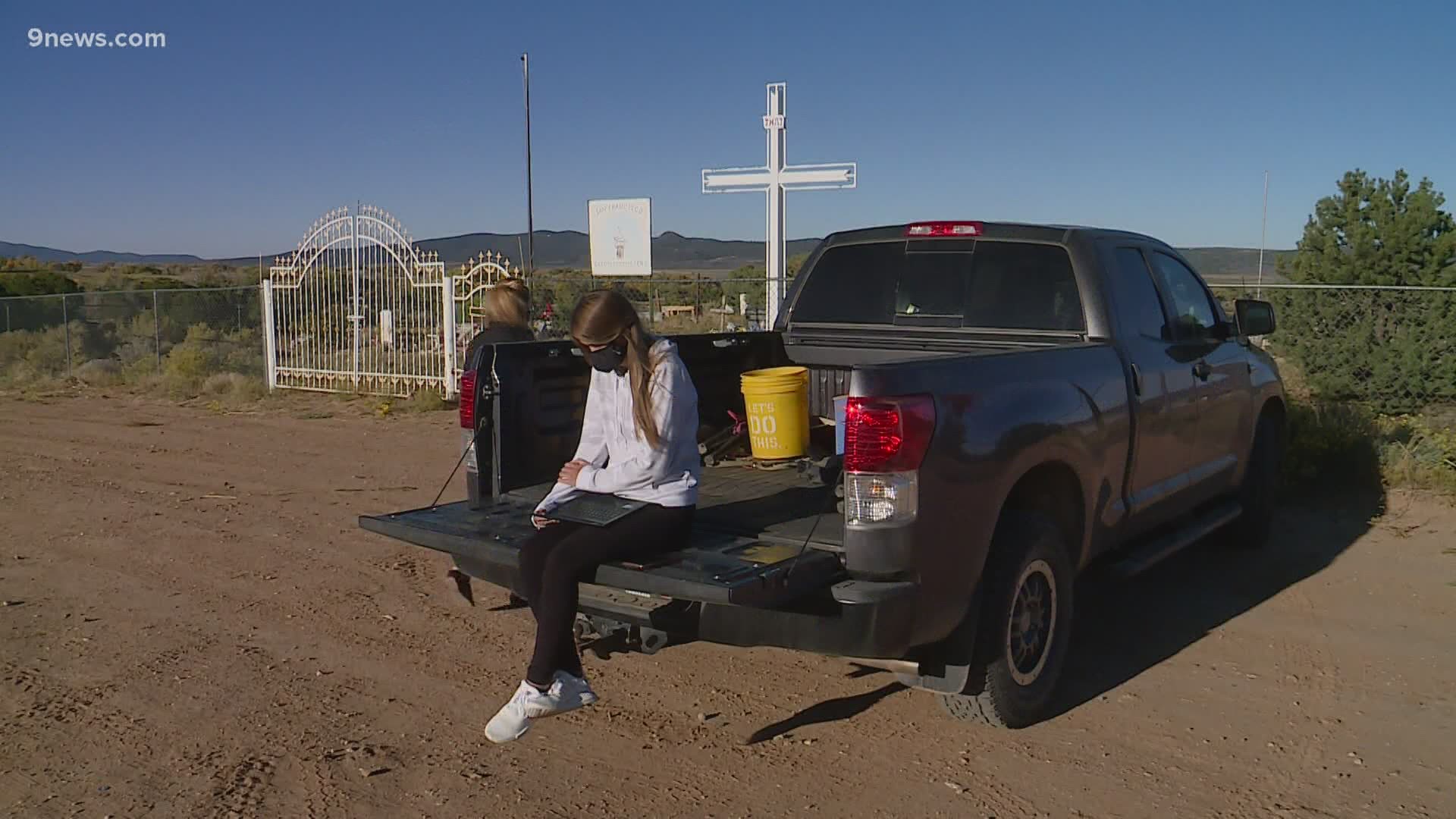DENVER — In a special legislative session, Colorado lawmakers have passed a bill meant to provide $20 million worth of grants to school districts that need help getting their students and teachers connected to the internet.
Gov. Jared Polis called the special session in November, tasking the state legislature to allocate almost $300 million toward efforts to help Coloradans affected by the COVID-19 pandemic.
“The unique part of this [bill] is that each district, or coalition of districts, makes the application and defines a plan that meets their unique needs,” Democratic State Rep. Mary Young said.
Young joined her Republican co-primary sponsor Rep. Matt Soper for an interview with 9NEWS on Tuesday, a day before HB20B-1001 passed both chambers in the state legislature.
“A school district can be incredibly creative with this bill,” Soper said. “They can use satellite internet to get internet to that one remote kid [who needs it], they can buy subscriptions for teachers and students who happen to be in the same family and the same household, so school districts have a lot of leverage to be able to get kids online and learning quickly.”
There is no limit to how much money a district can apply for, so long as it has a plan and can prove there is a need among its students and teachers.
The Colorado Department of Education reviews the applications, and the Commissioner of Education awards the grants.
The districts should have the money by February 2021, according to Soper.
The prospect of getting this additional money is something that Centennial School District Superintendent Toby Melster is cautiously optimistic about.
“We’ve tried that band aid approach of hotspots,” Melster said. “The hotspots aren’t working because we’re not ‘in the service area’ of certain providers. Even if we are in that ‘service area,’ we still have struggles.”
Almost 60% of the district’s about 200 Pre-Kindergarten through 12th-grade students in the Southern Colorado town of San Luis do not have reliable internet, or do not have internet at all, according to a survey the district sent to families in October.
For most of those respondents, the rural landscape makes it difficult to find a good connection, but the survey also found that about 43% of those families simply could not afford to be connected.
As 9NEWS reported in the beginning of November, Melster has been working with his IT service provider, CMS IP Technologies, to build a system of antennas that would beam the school building’s fiber optic connection to homes throughout town and into as many of the surrounding mountainous areas as possible.
Melster estimates the project will cost between $750,000-$1.5 million, depending on how robust they can afford the infrastructure to be.
“We’re going to have to wait and see what districts apply for,” Young said when asked if an expensive endeavor like San Luis’ could get funded with this grant money. “But…[Representative Soper] and I have said this is only the beginning, because really, in many cases, there have to be longer-term solutions provided.”
“Our bill really is designed to help students in places like San Luis,” Soper said. “It could be possible that the full request that they make gets funded. I certainly would love to see that as well.”
The Commissioner of Education’s job in deciding what money goes to what district is one that Melster does not envy.
“We [have more than 170] districts in the state of Colorado, and I guarantee if you talk to every single one of them, my personal opinion is … they’re going to tell you there are issues with connectivity regardless of where they’re located,” Melster said. “How fair is it for me to say my kids are more important than Denver’s? All of our students across this state are important, and to be able to reach them in this remote setting is even more important.”
The Centennial School District in San Luis has already collected about $250,000, part of which is from the state’s Connecting Colorado Students $2 million grant fund, according to Melster.
“Anything is better than nothing,” Melster said.
In the meantime, he is hoping more internet providers come to the table to help school districts out.
Specifically, he talked about Jade Communications, which is one of the companies that provides service to San Luis and the district.
“School districts are one of the consistent subscribers to technology,” Melster said. “We’re doing an excellent job providing an education, but that education has to include that technology side of it, because our society as a whole isn’t going to get away from technology. It’s just going to keep progressing.”
SUGGESTED VIDEOS: Politics


